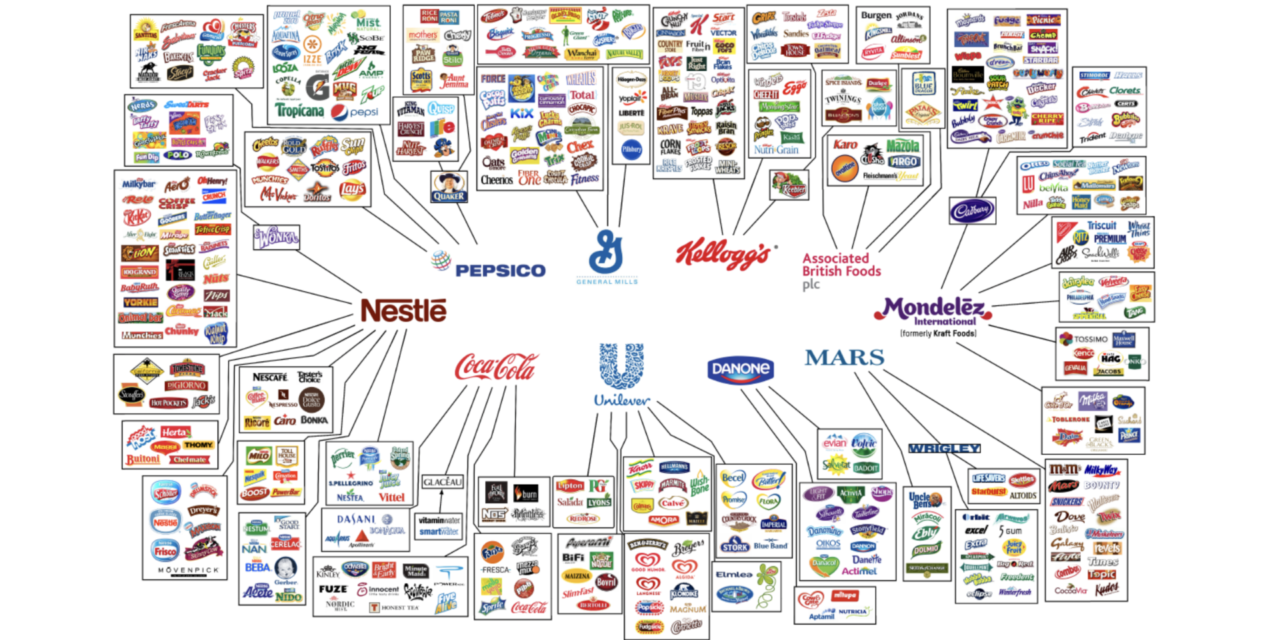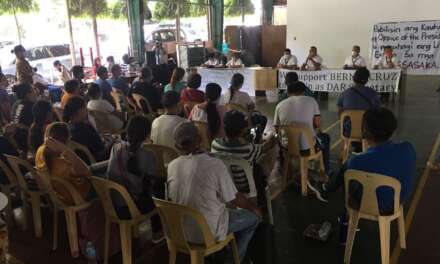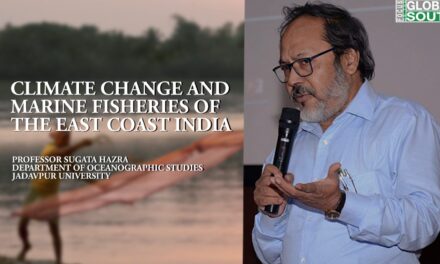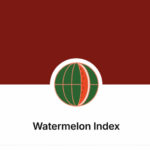by Shalmali Guttal
The Global Food Crisis, this time
A dossier by Focus on the Global South
A perfect storm is brewing in the global food system, pushing food prices to record high levels, and expanding hunger. The continuing fallout from the COVID-19 pandemic, the Russia-Ukraine War, climate-related disasters and a breakdown of supply chains have led to widespread protests across the global South triggered by the spiraling food prices and shortages.
As international institutions struggle to respond, some governments have resorted to knee-jerk ‘food nationalism’ by placing export bans to preserve their own food supplies and stabilise prices. While this is an understandable defensive response, the solution lies in a more systemic, transformative approach.
In this dossier, researchers from Focus on the Global South write about various aspects of the current crisis, its causes, and how it is impacting countries in Asia. These include regional analysis, case studies from Sri Lanka, Philippines and India, the role of corporations in fuelling the crisis and the flawed responses of international institutions such as the World Trade Organisation (WTO), the Bretton Woods Institutions and United Nations agencies. We also attempt to present national, regional and global aspects of a progressive and systemic solution as articulated by communities, social movements and researchers at multiple levels.
Other articles included in the dossier can be found under this tag here.
The world is in the grips of the third global food crisis in the past 50 years and like previous ones, it promises to be a multi-year crisis that will greatly increase hunger, under-nourishment, and food and economic insecurity for hundreds of millions of people around the world. Occurring less than 15 years after the 2007-2012 food crisis, the current crisis foregrounds the importance of critically assessing measures taken by states and multilateral and international institutions to ensure that economic, financial, climate and environmental shocks do not precipitate recurring, overlapping crises, and undermine the rights and resilience of people and societies.
The recently released State of Food Insecurity and Nutrition in the World 2022 (SOFI 2022) report presents a sobering picture of the failure of global efforts to end hunger, malnutrition and food insecurity.[1] Moderate and severe food insecurity has been rising since 2014. In 2020, between 720-811 million people faced hunger, and the estimated increase in 2020 of almost 320 million hungry people was equal to that of the previous five years combined. In a single year (2019-2020), nearly one in three people in a world of 2.37 billion did not have access to adequate food.[2] In 2021, around 2.3 billion people were moderately or severely food insecure, and between 702 and 828 million people were affected by hunger. The number of people unable to afford a healthy diet rose by 112 million to almost 3.1 billion, though this number could be greater factoring in income losses in 2020.[3]
This grim reality of increasing world hunger, malnutrition and food insecurity is largely attributed to the COVID-19 pandemic, accelerating climate change, continuing wars-conflicts, economic downturns, poverty and inequality. The COVID-19 pandemic has certainly had a large hand in the alarming increase in hunger, food insecurity, poverty and inequality. But as SOFI 21 shows, even before the Covid-19 pandemic struck in 2020, world hunger levels were abysmally high. The lockdowns, job and income losses, and economic crisis in the wake of the pandemic, increased frequency of extreme weather events, and the war in Ukraine have made the current crisis even more complex.
Diminished access to food has been aggravated by the ongoing Russian war on Ukraine that disrupted grain exports and supply chains from the Black Sea region, resulting in soaring prices for grain, energy, fertilizer and other products sourced from Ukraine and Russia. Supply disruptions coupled with export restrictions imposed by numerous countries triggered temporary shortages and panic buying, resulting in sharp spikes in food prices that are worsening hunger in the world’s poorest and most vulnerable regions.[4]
Country level responses to stave off hunger and food insecurity have varied depending on the strengths and weaknesses of national food stocks, production capacities and currencies, debt levels, and purchasing power. Low-income food importing countries in particular face multiple challenges of high indebtedness,[5] depreciating currencies, and insufficient resources and infrastructure to boost the availability of locally produced native foods. As the war situation continues, more countries have started restricting their exports to cater to domestic needs, which though understandable, have further contributed to global inflationary trends in agricultural commodities.[6] Poorer countries facing high risks of food and economic insecurity have focused on short term solutions, which although necessary, would bind them even more firmly to the rigid, inflexible and unreliable global industrial food system.
Ignoring Structural Causes
“It is true that the Russian invasion against Ukraine disrupted global markets, and that prices are skyrocketing. But that also tells us that markets are part of the problem. Markets are amplifying shocks and not absorbing them… food prices are soaring not because of a problem with supply and demand as such; it is because of price speculation in commodity futures markets.”
Michael Fakhri, Special Rapporteur on the Right to Food, 2022.[7]
Governments, multilateral and international agencies are by and large apportioning the lion’s share of blame for the current world food crisis to global supply shortages arising from the war on Ukraine, ignoring the persisting impacts in low- and middle-income countries of “the market forces of concentration and speculation, of globally determined macroeconomic processes, and the collapse of livelihood opportunities affecting these countries in the post-Covid world.”[8] Central to recurring food price volatility, food crises and the entrenchment of hunger and food insecurity are market structures, regulations, and trade and finance arrangements that bolster a global corporate dominated industrial food system, and enable market concentration and financial speculation in commodity markets. Although wheat futures prices shot up dramatically after the Russian invasion of Ukraine in February 2022, food price volatility was already rampant well before that with food prices reaching record levels.[9] [10] Analysis by the International Panel of Experts on Sustainable Food Systems (IPES-Food) indicates that the kind of “excessive speculation” seen in 2007-2008 that triggered food price spikes may be back.[11]
Multilevel market concentration and financial speculation on commodity markets have played pivotal roles in past and the present food crises and present grave threats to the realization of the Right to Food.[12] [13] [14] A historical examination of food crises over the past 50 years by Jennifer Clapp shows that the global industrial food system has been rendered more prone to price volatility and more susceptible to crises because of three interrelated manifestations of corporate concentration:
“First, the global industrial food system relies on a small number of staple grains produced using highly industrialized farming methods, making the system susceptible to events that affect just a handful of crops and to rising costs of industrial farm inputs. Second, a small number of countries specialize in the production of staple grains for export, on which many other countries depend, including many of the poorest and most food insecure countries. And third, the global grain trade is dominated by a small number of firms in highly financialized commodity markets that are prone to volatility (IPES-Food 2022; FAO 2022; OECD and FAO 2020).”
Jennifer Clapp, 2022. [15]
Concentration occurs, explains Clapp, “from farm fields to national distribution of production to global agricultural markets.”[16] A small number of corporations exercise a high degree of influence over the global industrial food system, powered by mergers and acquisitions of one another to form giant mega-corporations, which enable further concentration horizontally and vertically, as well as influence over policy making and governance nationally and globally. Four grain trading corporations– Archer-Daniels Midland, Bunge, Cargill and Dreyfus, called the ‘ABCD–control 70-90 % of the grain trade. As “cross sectoral value chain managers” these grain trading giants are able to compile large amounts of market data, but are under no obligation to disclose this information and can hold stocks until prices have peaked.[17] And in each of the three global food crises studied, financial speculation has caused steep increases in prices, making food inaccessible to hundreds of millions of people.
Over the past decades financial actors have become increasingly involved in agri-food supply and value chains through complex financial instruments. Finance corporations have invested in commodity production, processing, retailing, agrochemicals digital technology, logistics (transportation and storage) and large-scale land deals, and are increasingly the hidden faces behind land, water and resource grabbing and dispossession of the peasantry.[18] The scale at which asset management firms are increasing horizontal and vertical shareholdings in food related sectors is resulting in “‘interlocking oligopolies operating all along agri-food supply chains’ with anti-competitive impacts in seeds, supermarkets and more.”[19]
Investors involved in the food and agribusiness sectors have seen their collective wealth increase by US$382bn (45%) over the past two years, with 62 new food billionaires created in the sector since the outbreak of the COVID-19 pandemic.[20] The profits of major grain trading agribusinesses showed dramatic increases in January-March 2022: taking cover behind assumptions of war driven supply shortages, they were able to raise their prices without being challenged.[21]
Multilateral Ineffectuality
Multilateral responses to the unfolding food crisis have by and large prioritized the smooth functioning of global supply chains for agricultural commodities and production inputs (especially fertilizers) by untangling commodity supply knots, keeping supply routes open, removing export bans and restrictions, and supporting further trade and investment liberalization. While multilateral institutions recognize in their discourse the systemic nature of the crisis, the financial constraints faced by low- and middle-Income countries (LMICs) in meeting immediate needs, and their resource and infrastructure challenges in building bulwarks against future crises, none propose measures to rectify the structural flaws of the global food system that render it vulnerable to market volatility and shocks, nor to deconcentrate international agri-food markets and liberate them from corporate domination.
This is hardly surprising given the increasing sway of (corporate) private sector in global food systems governance, spurred by the 2019 strategic partnership between the World Economic Forum (WEF) and the United Nations (UN) and the 2021 UN Food Systems Summit (UNFSS), both with the ostensible aims of advancing the 2030 agenda, addressing hunger and malnutrition, and tackling climate change. The appointment of the President of the Alliance for a Green Revolution in Africa (AGRA) as the Special Envoy for the UNFSS, and the involvement of business alliances and philanthropies closely linked to the WEF such as AGRA, the World Business Council on Sustainable Development (WBCSD), Food and Land Use Coalition (FOLU) and the Bill and Melinda Gates Foundation (BMGF), were clear indications of UN alignment with market-oriented, high technology driven approaches and the shift from multilateralism to multistakeholderism.[22]
The UNFSS was criticized and opposed by over 550 civil society organizations and social movements, and numerous academics for the corporate, big agri-food, big nutrition, big data, and big finance influences that shaped its premise and outcomes, and for providing multilateral legitimacy to a WEF inspired “corporatocracy of sorts with corporations governing alongside States, the UN, and powerful NGOs.” The multistakeholder governance model of the UNFSS has undermined existing multilateral and rights-based food governance spaces such as the United Nations Committee on World Food Security (CFS).[23] [24]
A “game changing solution” that emerged from the UNFSS is the Zero Hunger Private Sector Pledge that exhorts corporations and investment funds to pledge money in “high impact intervention areas” to fill financing gaps that governments face in addressing food insecurity and climate change challenges.[25] While this may direct some financial resources towards cash strapped governments, it also provides corporations and private financiers greater say in domestic food and climate policies.
The Global Crisis Response Group on Food, Energy and Finance (GCRG) was established by the United Nations Secretary General (UNSG) Antonio Guterres in March 2022 to coordinate the global response to the impacts of the war on Ukraine on global food, energy, and finance systems.[26] Its first brief presents the global inter-connectedness of the war’s effects on global commodity and financial markets that affect food, energy and finance conditions, especially in a post pandemic, climate change ridden context. Its recommendations emphasize keeping markets and supply chains open and removing trade barriers and export restrictions, but do not advocate debt cancellation, changing the terms of trade and finance for developing countries, and regulating commodity and financial markets.[27] The second policy brief delves into debt and financial constraints that many developing countries are facing, and argues for the importance of short-term mitigation to be accompanied by building long-term national capacities to break the vicious cycles fuelling the crises, but stops short of recommendations to make necessary changes in global financial architecture and the global industrial food system.[28]
A significant achievement of the GCRG is the Black Sea Grain Initiative: an agreement with Russia on allowing food, sunflower oil, fertilizers and raw materials to produce fertilizers (including Ammonia) from Ukraine and Russia to travel out of Black Sea ports in exchange for easing sanctions against similar products originating in Russia.[29] However, signs that the Initiative may fall apart because of Russian claims that the deal is not being implemented to facilitate Russia’s grain and fertiliser exports, have manifested.[30] On 29 October, Russia withdrew from the grain deal citing drone attacks on Russian ships in Crimea.[31] While getting food and fertilizers at affordable prices to low-income, import dependent countries is an important short-term measure, the GCRG approach remains within a market-led, industrial agriculture, productivist logic and is thin on the human rights dimensions of food. Ironically, millions of peasant producers in the world are striving to move away from industrial agriculture and the use of agrochemicals because of damage to soil, environmental, animal and human health as well as family finances.
Following the lead of the GCRG, the G-7 launched the Global Alliance for Food Security with the World Bank in June 2022, pledging a total of over US$ 14 billion towards global food security. The G-7 statement calls for keeping food and agricultural markets open, avoiding “unjustified trade measures that increase market volatility” and even commits to fight against any speculative behaviour that endangers food security, or access to nutritious food for vulnerable countries or populations. But no actual measures are proposed to regulate commodity and financial markets to end speculation. It mentions the right to adequate food, long-term resilience, sustainability and support for smallholder farmers, but alongside support for a strategic investment plan to accelerate development of value chains in Africa and proposals by IFIs to increase productivity.[32]
A joint statement by the Food and Agricultural Organization (FAO), International Monetary Fund (IMF), World Bank Group (WBG), World Food Programme (WFP), and World Trade Organization (WTO) calling for urgent action to address the global food crisis advocates increased productivity, keeping global trade free of restrictions, trade facilitation, agricultural research, deeper integration of markets and increasing food system efficiencies.[33] This again is true to form: the Bretton Wood Institutions have been the institutional henchmen of the global expansion of capitalist agriculture, creating the neoliberal rules and legal framework for pro-corporate global trade.
The Declaration on the Emergency Response to Food Insecurity from the WTO’s 12th Ministerial Conference offers nothing by way of tackling the structural and systemic causes of hunger and malnutrition; instead, it commits members to further liberalisation of trade in food and agriculture products through global markets and adherence to WTO disciplines. The Declaration’s preamble expresses “concern” about the impacts of excessive price volatility for food and agricultural products, fiscal constraints and deteriorating terms of trade on food security, and then goes on to express “determination” to make progress towards a fair and market-oriented agricultural system. But as noted by Focus on the Global South, “A market-oriented agricultural trading system can hardly be fair when producers in wealthy and poor countries live in vastly unequal conditions, and when the terms of trade are skewed against small-scale food producers in developing countries by WTO rules that curtail their access to essential public infrastructure, support and services.” [34]
A reprehensibly low point in multilateral responses to the food crisis is the failure of the UN Committee on World Food Security (CFS) to establish a mechanism to coordinate international responses to the global food crisis in its 50th session in October 2022. Failure to reach agreement on such a mechanism already seemed imminent in the opening plenary, with many countries unequivocally stating their positions with or against Russia. Subsequent sessions on the food crisis degenerated into geopolitical wrangling over language on sanctions and responsibility for the food crisis. Appeals by civil society participants and the Special Rapporteur on the Right to Food reminding CFS member states of the mandate of the CFS — realizing the right to food and advancing food security and nutrition – met with no success, and the CFS was unable to conclude its final plenary.[35] In the words of civil society participant Alberta Guerra, “It’s alarming that the only pending decision is on the CFS’s core mandate, which is to coordinate response during global crisis to fulfil the right to food for all.”[36]
Courting Corporations
Among the UN agencies, the FAO is possibly the most enthusiastic advocate of global markets, global supply and value chains, private investment and pro-corporate trade as the panacea for persisting food insecurity and malnutrition. By virtue of its mandate as the central UN agency for addressing food security, FAO has significant influence over policy making in developing countries but has tended to toe the Bretton Woods line rather than support developing countries to build robust, resilient food systems anchored in human rights and responsive to diverse national realities. At the start of the COVID pandemic, FAO joined the WTO and World Health Organization (WHO) in issuing a call to governments to refrain from imposing trade related measures and other restrictions that could disrupt global food supply chains and global trade.[37]
The FAO’s response to the current crisis are proposals for a Food Import Financing Facility (FIFF) for low-middle income countries with large food importing needs[38]; social protection measures for food security and nutrition[39]; and investment for the reconstruction of Ukraine’s agricultural sector.[40] While these are important immediate-intermediate responses, they are firmly in the paradigm of meeting food and nutrition needs through global markets, free trade, industrial agriculture and cash transfers, with no indication for a longer-term shift towards food self-sufficiency, local food systems and agroecology.
Despite recognition of the importance of small-scale food provision and the urgency of ecological sustainability, FAO has long been a supporter of agribusiness corporations, and a proponent of high technology driven industrial agriculture, including the much-critiqued Green Revolution for Africa and the use of digital technologies to integrate smallholder agriculture into regional-global markets.[41] [42] FAO’s relationship with small-scale food producers and civil society has tended to favour organizations that are amenable to its market and private investment oriented mission.
In 2008, FAO, along with the International Fund for Agricultural Development (IFAD) and WFP, signed a Memorandum of Understanding (MoU) with AGRA to “boost food production in Africa’s breadbasket regions.”[43] FAO has been a strategic partner in the Africa Green Revolution Forum (AGRF), an annual multistakeholder forum that brings together government decision makers with corporate investors and financiers to advance green revolution agriculture in the African continent.[44] In 2020, FAO and AGRA convened a Round Table hosted by the AGRF to discuss how to address bottlenecks arising from COVID-19 that impede regional-global trade and highlight the role (and business opportunities) for the private sector in keeping food value chains functioning through the pandemic.[45]
FAO also has collaborative relationships with the BMGF and Rockefeller Foundation, the creators and main financiers of AGRA. FAO is a grantee of the BMGF and secured a US$ 11 million grant for its Monitoring and Analysing Food and Agricultural Policies program in Africa that aims to scale up investment, achieve more transparent markets and trade, and achieve inclusive rural transformation.[46] [47] FAO and The Rockefeller Foundation signed a partnership agreement in 2016 to support food loss and waste reduction, value addition, processing, market linkages and impact measurement in sub-Saharan Africa.[48]
The breadth of the food and agriculture sector has provided FAO with numerous opportunities to build partnerships with private investors, financiers, philanthropies, agri-businesses and industry groups. The FAO’s private sector engagement strategy names a range of actors as potential partners, from farmers’ and producer’ organizations, cooperatives and micro-, small and medium-sized enterprises (MSMEs) to large national and multinational companies, financial institutions, industry, trade associations, private sector consortia and philanthropic foundations.[49] However a study on the FAO strategy notes that “large, including multinational, firms and private sector associations, account for a large majority of all private sector engagements in the FAO,” including corporations and trade associations “whose consortia and membership have a far (often global) reach and therefore extensive impact on communities protected by the UN instruments.” The study points to several problematic aspects of FAO’s private sector engagement: lack of transparency in funding from private sources and the nature of partnerships; weakening of due diligence from a “risk adverse” to “risk conscious” approach; and absence of mechanisms for addressing conflicts of interest and ensuring corporate accountability.[50]
A prominent FAO partner is the International Feed Industry Federation, whose members represent over 80 % of the compound animal feed production worldwide.[51] FAO and IFIF signed an MoU in 2005 and have collaborated on numerous activities related to animal feed chains, the livestock industry and standard setting.[52] Another long-standing prominent FAO partner is the International Fertilizer Association (IFA), with more than 400 members in 70 countries. The FAO-IFA MoU was renewed in December 2021 and includes expanding the use of different kind of chemical fertilizers and developing codes of conduct for fertilizer use.[53] In March 2022, FAO signed an MoU with the International Chamber of Commerce (ICC) to increase public-private collaboration. The ICC, the world’s largest business organization network, was founded in 1919 and claims that it is the “institutional representative of more than 45 million companies in over 100 countries.”[54]
Particularly contentious is the budding partnership between FAO and Crop Life International (CLI) that was set into motion with signing of a Letter of Intent in October 2020.[55] CLI’s members include some of the largest agrochemical, pesticide and seed companies including BASF, Bayer Crop Science, Corteva Agriscience, FMC and Syngenta, and over one-third of CLI members’ sales are in Highly Hazardous Pesticides (HHPs) that pose the highest levels of risk to health, the environment and biodiversity.[56]
This shocking alliance has been widely condemned by small scale food producers, workers, indigenous peoples, civil society organizations and scientists. In November 2020, 352 civil society and Indigenous Peoples’ organizations from 63 countries, sent a letter to FAO Director General Dongyu Qu urging FAO to abandon its partnership plans with the pesticide industry.[57] Similar letters were sent by more than 250 scientists, academics, and researchers, and 47 foundations and funder networks.[58] [59] In December 2021, over 187,300 individuals from more than 107 countries submitted a global petition demanding an immediate end to the toxic alliance between FAO and CLI, followed by a letter to the FAO Council in June 2022.[60] To date, the FAO has given no indication that it will withdraw from the partnership agreement with CLI.
FAO’s close links with corporations, trade and industry associations, and corporate consortia call into question the impartiality and credibility of FAO’s policy advice to governments and multilateral fora to effectively address hunger and malnutrition and strengthen food security. In regional and international fora, FAO has sided with corporate and industry positions over those of small-scale food producers, workers and civil society organizations campaigning for the Right to Food and food sovereignty. Further, its corporate partnerships and subservience to the Bretton Woods Institutions continue to undermine its own commitments as a UN agency to uphold human rights.
The Urgency of Global Paradigm Shift
“Public policies set the framework for how the resources of a country/province/state are to be used, and how critical issues are to be addressed, and crises confronted. They also pave the way for regulations that ensure and protect public interest. Good public policies ensure that short- term solutions can become building blocks for long-term transitions.”
Civil Society and Indigenous Peoples Mechanism, 2022.[61]
“Ultimately, we need to break up the monopolies that have a stranglehold on the food chain. A handful of companies control global seed and fertiliser markets, animal genetics, the global grain trade, and food retail. They are making huge profits at the cost of farmers, consumers and the environment.”
Olivier De Schutter, Special Rapporteur on Extreme Poverty and Human Rights, 2022.[62]
There is an abundance of evidence to show that policy responses to past food crises have enabled the rise of a financialized global industrial food system that functions through complex value chains, corporate dominated global trade, and unregulated commodity futures markets. Rooted in neoliberal ideology and claiming goals of efficiency, productivity and sustainability, these responses have promoted corporate expansion in virtually every aspect of food provision and governance, from production, processing, transportation, and retail to shaping legal frameworks for trade, investment, accountability and market concentration.[63] [64] And they have undermined the rights, health and agency of majority of the world’s people. Those who are already most deeply affected by these responses and policies and face heightened risks of future negative impacts are people and communities who produce most of the world’s food through small-scale family production and as workers in the industrial food production systems, and those who produce the goods and provide the services that ease our lives. Other articles in this collection have already presented in considerable detail the impacts of the current and past food crises, as well as the mechanisms by which public systems critical to the lives of majority of the people in the world have been dismantled.
Unless this destructive global food system and deeply biased food governance system are radically transformed, the world will never be free from the dangers of recurring, overlapping food, ecological, health and economic crises, which will become more frequent and intense, and undermine further the capacities of people, communities and nations to rebuild livelihoods and resilience to shocks. The current conjuncture underscores the urgency and presents opportunities for a global paradigm shift to peoples’ food sovereignty, agroecology, territorially embedded food systems and markets, and deglobalized public interest economies–based on values of equality, justice, human rights, social protection, grassroots feminism, and respect for nature. The elements of these approaches have been articulated by numerous organizations and movements of peasants, fisherfolk, pastoralists, workers, indigenous peoples, and women, and many are presented in other articles in this collection. They show how the power of corporate concentrated industrial monocultures and global markets can (and must) be countered by the diversity, local-regional vitality, adaptability, innovations, participatory governance, and agency embodied in these approaches.
A troubling barrier to the urgently needed paradigm shift is lack of decisive leadership in international and multilateral decision-making fora with the courage to propose actions that can set transformation in motion. Earlier notions of multilateralism where states make decisions on behalf of and are accountable to their citizens and regulate the economy and private sector in the public interest, are being set aside in favour of ‘networked multilateralism,’ a multistakeholder model of global governance promoted by the UN Secretary General that gives corporate and industry bodies seats at regional and global decision-making tables. In his report to the UN General Assembly on the right to food and the COVID-19 pandemic, Michael Fakhri, Special Rapporteur on the right to food notes that the world continues to be mired in food crises is not only because of the pandemic but equally, “because many governments and international institutions have failed to listen to the most vulnerable communities and respond to their demands. They have refused to cooperate and coordinate, and have decided instead to enable agrifood businesses and financial speculation.”[65]
But the moribund nature of multilateralism also presents an opportunity for the world’s people—rights holders, the people of the United Nations—to amplify our demands at regional and international fora for paradigm change, for reclaiming and revitalizing the sphere of the public, and for radical transformation of the global food system and its governance. Proposals for such a transformation have been elaborated by the CSIPM in a recently released report and are presented in the following box. Campaigns and struggles for halting the privatization of our food and life systems must also include stopping the privatization of multilateral governance.
Voices from the ground 2: transformative solutions to the global systemic food crises.
Popular consultation on grassroots impacts of covid-19, conflicts, and crises on the right to food and food sovereignty[i]
In 2020, the CSIPM conducted consultations with all its 11 constituencies across all regions, on the impacts of the COVID-19 pandemic on food security and nutrition.[ii] The consultations revealed that neoliberalism was the most critical pre-existing systemic condition in determining the pandemic’s impacts and deepening persisting conditions of inequality, poverty and food insecurity. Neoliberal policies have dismantled life-essential public policies and regulation, and privileged corporate dominated, global food markets over small-scale food production and territorially embedded food systems.
Follow-up consultations in 2022 at an even larger scale by the CSIPM about the current global food crisis pointed again to the crucial role of entrenched economic, social, ethnic and gender inequalities and asymmetries in access to food, healthcare, social protection and life sustaining goods and services in deepening and widening hunger and food insecurity. Extreme weather catastrophes have become more frequent, with droughts, heatwaves, wildfires, floods and cyclones wreaking havoc on small scale food provision. Countries and populations least responsible for greenhouse gas emissions continue to experience the impacts of climate chaos most acutely, leading to the loss of livelihoods of indigenous peoples and small-scale food producers. Continuing conflicts, wars and state violence are leading to dispossession, displacement, distress migration, poverty and hunger, and food is being used as a geopolitical weapon.
The consultations show that prices of all essential goods were already increasing over the past three years, and that increased costs of production inputs, energy and transportation have caused the incomes of small-scale food producers to plummet, while food processors and retailers have been able to increase prices and make profits. Many urban poor communities are engaged in informal employment, and are particularly vulnerable to price fluctuations and wage losses. In rural and urban areas alike, low-income populations face increasing income and wage losses, disruption of local markets, precarious working conditions, unemployment, loss of education opportunities, land-grabbing, increased family indebtedness and lack of access to medical care and health services. These conditions are compounded by deteriorating human rights conditions across much of the global South where there is a dire lack of protection for human rights, and attacks on leaders of social movements and human rights defenders go unpunished.
Because of persisting gender inequality and patriarchal prejudices, women, girls and non-binary people are particularly at risk in times of crises and scarcity, and face heightened discrimination in access to food, health, education and employment. In poor and low-income families, the burden of family care significantly increases for women, and they are compelled to adopt extreme coping strategies including reducing their own consumption and migrating to find wage work. Young people in food- producing and working-class families (both urban and rural) face multiple obstacles to education, skills development, employment and social cohesion.
The report presents short- and long-term measures to immediately address the crisis and transform the global food system in a coherent, complementary manner. Immediate measures include the provision of humanitarian aid in conflict zones that strengthen local food systems and community solidarity initiatives; ensuring that food aid programmes distribute healthy agroecological food that is locally sourced and supported through state financing, not corporate dumping; market and financial regulation to end speculation in food commodities; cancelling private and public debts in developing countries so that they have the fiscal resources to invest in food sovereignty; taxes on profits and wealth to fund social policies, and; ensuring small-scale food producers have the resources and inputs needed for the coming agricultural season, privileging native seeds, bio-fertilizers and domestic resources.
Long term measures include breaking food import dependency and building domestic food provisioning; transforming food systems through agroecology; implementing food sovereignty; disciplining and limiting corporate power; reorienting trade and investment to serve public interest rather than corporations; dismantling WTO agreements and halting Free-Trade Agreements, and; ensuring human rights and democratic multilateralism.
At the heart of all these measures are human and collective rights (with special attention to women, and non-cis heteronormative persons); democratic control over food systems, policies and governance; accountability of corporations and governments to people, and; the removal of corporations and capital from food governance. Agroecology and agrarian reform will revitalise the environment and biodiversity and secure peoples’ access to territories. Food sovereignty will build the agency of local producers, workers and organisations, strengthen public procurement from local-regional producers, and shorten commercial circuits through territorial markets.
For information about the Civil Society and Indigenous Peoples’ Mechanism, please see https://www.csm4cfs.org
—-
[i] CSIPM. 2022. Voices from the ground 2: transformative solutions to the global systemic food crises. https://www.csm4cfs.org/voices-from-the-ground-transformative-solutions-to-the-global-systemic-food-crises/ Accessed 1 November 2022
[ii] CSM. 2020. Voices from the ground: From COVID-19 to radical transformation of our food systems CSM 2020, https://www.csm4cfs.org/csm-global-synthesis-report-covid-19/ accessed 25 September 2022
[1] FAO, IFAD, UNICEF, WFP, and WHO. 2022. The State of Food Security and Nutrition in the World 2022. Repurposing food and agricultural policies to make healthy diets more affordable. Rome: FAO. https://doi.org/10.4060/cc0640en Accessed 21 October, 2022.
[2] FAO, IFAD, UNICEF, WFP, and WHO. 2021. The State of Food Security and Nutrition in the World 2020. Transforming Food Systems for Affordable Healthy Diets. Rome: FAO. https://www.fao.org/3/cb4474en/online/cb4474en.html Accessed 21 October, 2022.
[3] FAO, et al. Op. Cit.
[4] IPES Food. Another perfect storm? How the failure to reform food systems has allowed the war in ukraine to spark a third global food price crisis in 15 years, and what can be done to prevent the next one. May 2022. Https://ipes-food.org/_img/upload/files/anotherperfectstorm.pdf Accessed 21 October, 2022.
[5] Jubilee UK. Debt Justice, The growing debt crisis in lower income countries and cuts in public spending, 2022. https://jubileedebt.org.uk/wp-content/uploads/2022/05/Debt-and-public-spending_May-2022.pdf . Accessed 26 October, 2022.
[6] Glauber, Joseph, Laborde, David and Mamun, Abdullah. From bad to worse: How Russia-Ukraine war-related export restrictions exacerbate global food insecurity. Blog post. International Food Policy and Research Institute. 13 April, 2022. https://www.ifpri.org/blog/bad-worse-how-export-restrictions-exacerbate-global-food-security. Accessed 28 May, 2022
[7] UN Security Council Aria-Formula Meeting on Conflict and Hunger. UN Special Rapporteur on the Right to Food Michael Fakhri. 21 April 2022. https://www.ohchr.org/sites/default/files/2022-05/UNSC-Aria-Hunger-Conflict.pdf Accessed 1 November, 2022.
[8] CP Chandrasekar and Jayati Ghosh. A food crisis not of their making. The crisis in low, middle-income nations is driven by speculation, falling purchasing power and depreciating currencies September 19, 2022 – Updated 09:40 pm IST. https://www.thehindubusinessline.com/opinion/a-food-crisis-not-of-their-making/article65911286.ece Accessed 18 October 2022.
[9] Ghosh, Jayati. The Price Increases that Matter for the Poor. January 12 12, 2022. https://www.project-syndicate.org/commentary/tackling-the-food-price-inflation-problem-by-jayati-ghosh-2022-01 Accessed 18 October 2022.
[10] Clapp Jennifer. 2022. Concentration and crises: exploring the deep roots of vulnerability in the global industrial food system, The Journal of Peasant Studies, DOI: 10.1080/03066150.2022.2129013
[11] IPES-Food. Op. Cit.
[12] Ibid
[13] CP Chandraseker et al. Op. Cit.
[14] Bello, Walden, ‘Never Let a Good Crisis Go to Waste’: The Covid-19 Pandemic and the Opportunity for Food Sovereignty, Transnational Institute and Focus on the Global South, April 29, 2020, https://www.tni.org/files/ publication-downloads/web_covid-19.pdf
[15] Clapp, Jennifer. Op. Cit.
[16] Ibid.
[17] IPES-Food. Op. Cit.
[18] Basu, Ranjini and Shalmali Guttal. Agriculture Negotiations at the WTO: No Sight of Real Solutions in Envisioning a Better World Without the WTO. Page 25. A Dossier by Focus on the Global South. June 2022. https://focusweb.org/publications/envisioning-a-better-world-without-the-wto/ Accessed 18 October 2022.
[19] ETC Group. Plate Tech-Tonics, Mapping Corporate Power in Big Food. https://www.etcgroup.org/content/plate-tech-tonics Accessed 8 June 2022.
[20] Oxfam. Profiting from pain: The urgency of taxing the rich amid a surge in billionaire wealth and a global cost-of-living crisis, 2022. https://oi-files-d8-prod.s3.eu-west-2.amazonaws.com/s3fs-public/2022-05/Oxfam%20Media%20Brief%20-%20EN%20-%20Profiting%20From%20Pain%2C%20Davos%202022%20Part%202.pdf Accessed 24 October 2022.
[21] C.P. Chandrasekhar and Jayati Ghosh. Why are Global Wheat Prices Rising so much? 14 June, 2022. https://www.networkideas.org/featured-articles/2022/06/global-wheat-prices-rising/ Accessed 18 October 2022.
[22]Kirtana Chandrasekaran, Shalmali Guttal, Madhuresh Kumar, Laura Langner and Mary Ann Manahan. Exposing corporate capture of the UNFSS through multistakeholderism. September 23, 2021. https://www.foodsystems4people.org/multistakeholderism-report/ Accessed 24 October 2022.
[23] Ibid
[24] A compilation of critiques, statements, press articles and research materials by civil society organizations and academics on the UNFSS is available at https://www.foodsystems4people.org
[25] Zero Hunger Private Sector Pledge. https://www.gainhealth.org/about/partnerships/zero-hunger-private-sector-pledge Accessed 1 November 2022
[26] https://news.un.org/pages/global-crisis-response-group/ Accessed 2 November 2022.
[27] Brief No. 1. Global Impact of war in Ukraine on food energy and finance systems. 13 April 2022. https://news.un.org/pages/wp-content/uploads/2022/04/UN-GCRG-Brief-1.pdf?utm_source=United+Nations&utm_medium=Brief&utm_campaign=Global+Crisis+Response Accessed 2 November 2022
[28] Brief No. 2. Global impact of war in Ukraine: Billions of people face the greatest cost-of-living crisis in a generation. 8 June 2022. https://news.un.org/pages/wp-content/uploads/2022/06/GCRG_2nd-Brief_Jun8_2022_FINAL.pdf?utm_source=United+Nations&utm_medium=Brief&utm_campaign=Global+Crisis+Response Accessed 2 November 2022
[29] Black Sea Grain Initiative. https://www.un.org/en/black-sea-grain-initiative Accessed 2 November 2022
[30] Moscow threatens to exit Black Sea grain deal. October 13, 2022 https://www.politico.eu/article/moscow-threatens-to-exit-black-sea-grain-deal/ Accessed 2 November 2022
[31] Russia halts participation in Ukraine grain agreement. 29 October 2022 https://www.aljazeera.com/news/2022/10/29/russia-suspends-participation-in-ukraine-grain-deal Accessed 29 October 2022
[32] G7 Statement on Global Food Security http://www.g7.utoronto.ca/summit/2022elmau/220628-food-security.html Accessed 24 October, 2022
[33] Second Joint Statement by the Heads of Food and Agricultural Organization, International Monetary Fund, World Bank Group, World Food Programme, and World Trade Organization on the Global Food Security and Nutrition Crisis. September 21, 2022. https://www.imf.org/en/News/Articles/2022/09/21/pr22313-second-joint-statement-by-the-heads-of-fao-imf-wb-wfp-and-wto-on-the-global-food-security Accessed 24 October, 2022
[34] Big Pharma and Big Tech win at the WTO – #MC12 Fails the Global South in Envisioning a Better World Without the WTO. Page 3. A Dossier by Focus on the Global South. June 2022. https://focusweb.org/publications/envisioning-a-better-world-without-the-wto/ Accessed 18 October 2022.
[35] Food security at stake, multilateralism at risk: when politic fails. October 18, 2022. https://www.cidse.org/2022/10/18/food-security-at-stake-multilateralism-at-risk-when-politic-fails/ Accessed 24 October 2022
[36] CFS 50 was completely stalled by geopolitical interest. October 14, 2022. https://www.actionaidusa.org/cfs-50-was-completely-stalled-by-geopolitical-interests/ Accessed 24 October 2022
[37] Agency Chiefs issue joint call to keep food trade flowing in response to COVID-19 https://www.wto.org/english/news_e/news20_e/igo_26mar20_e.htm Accessed 1 November, 2022
[38] FAO Food Import Facility https://www.fao.org/3/cb9444en/cb9444en.pdf Accessed 2 November 2022
[39] Response to the Ukraine Crisis: Social Protection for Food Security and Nutrition. https://www.fao.org/3/cb9448en/cb9448en.pdf Accessed 2 November 2022
[40] Assessing Investment Needs in Ukraine’s Agricultural Reconstruction and Recovery. https://www.fao.org/3/cb9450en/cb9450en.pdf Accessed 2 November 2022
[41] The Future of African Food Systems must be in African Hands. September 7, 2021. https://afsafrica.org/press-release-200-organisations-urge-donors-to-scrap-agra/ Accessed November 2, 2022
[42] Timothy A Wise. Africa’s Land Use Problem: Is Green Revolution Agriculture a Solution or a Cause? December 3, 2021. https://www.theelephant.info/ideas/2021/12/03/africas-land-use-problem-is-green-revolution-agriculture-a-solution-or-a-cause/ Accessed 3 November 2022
[43] FAO, IFAD and WFP Sign MOU with Alliance for a Green Revolution in Africa http://sdg.iisd.org/news/fao-ifad-and-wfp-sign-mou-with-alliance-for-a-green-revolution-in-africa/ Accessed 1 November 2022.
[44] The Africa Green Revolution Forum (AGRF) https://www.fao.org/africa/events/detail-events/es/c/1206476/ Accessed 1 November 2022
[45] Private and development sectors to support Africa’s food systems amid COVID-19 https://www.fao.org/africa/news/detail-news/en/c/1274290/ Accessed 1 November 2022
[46] Gates Foundation awards $11M to FAO for African food policy program. 12 April 2022. https://www.devex.com/news/gates-foundation-awards-11m-to-fao-for-african-food-policy-program-103012 Accessed 1 November 2022
[47] https://www.gatesfoundation.org/about/committed-grants/2021/11/inv036827 Accessed 1 November 2022
[48] Rockefeller Foundation, FAO supporting Africa to halve food loss. https://www.fao.org/partnerships/news-archive/news-article/en/c/1142075/ Accessed 1 November 2022
[49] FAO 2021. FAO Strategy for Private Sector Engagement 2021-2025. Rome. https://doi.org/10.4060/cb3352n
[50] Naik, Ashka, T.J. Faircloth, Charlotte Dreger, Simone Adler. Corporate Capture of FAO: Industry’s Deepening Influence on Global Food Governance. May 2022. Corporate Accountability and FIAN International. https://www.fian.org/files/files/CorporateCaptureoftheFAO-EN.pdf Accessed 2 November 2022
[51] https://ifif.org/about/ifif/ Accessed 2 November 2022
[52] https://ifif.org/our-work/partnerships/fifs-partnership-with-the-food-agriculture-organization-of-the-united-nations-fao/ Accessed 2 November 2022
[53] FAO and International Fertiliser Association join forces to promote sustainable fertiliser use. 13 December 2021. https://www.fao.org/connect-private-sector/stories/detail/en/c/1460271/ https://ifif.org/our-work/partnerships/fifs-partnership-with-the-food-agriculture-organization-of-the-united-nations-fao/ Accessed 2 November 2022
[54] https://iccwbo.org/about-us/ Accessed 2 November, 2022.
[55] CropLife International and FAO Agree to New Strategic Partnership https://croplife.org/wp-content/uploads/2020/10/CLI-FAO-Partnership-Announcement.pdf Accessed 1 November 2022
[56] Naik, Ashka et al. Op. Cit.
[57] More than 350 civil society organizations and 250 scientists call on the un agency not to partner with croplife international. https://pan-international.org/release/350-civil-society-organizations-and-250-scientists-call-on-the-un-agency-not-to-partner-with-croplife-international/ Accessed 1 November 2022
[58] Letter from academics, scientists & researchers expressing concern regarding FAO’s announcement of plans to forge a new strategic partnership with CropLife International. November 19, 2020. https://agroecologyresearchaction.org/letter-from-academics-scientists-researchers-expressing-concern-regarding-faos-announcement-of-plans-to-forge-a-new-strategic-partnership-with-croplife-international/ Accessed November 1 2022
[59] https://justfoodsolutions.net Accessed November 1, 2022
[60] https://pan-international.org/stop-fao-croplife-toxicalliance/ Accessed November 1, 2022
[61] CSIPM. 2022. Voices from the ground 2: transformative solutions to the global systemic food crises. Page 14. https://www.csm4cfs.org/voices-from-the-ground-transformative-solutions-to-the-global-systemic-food-crises/ Accessed 1 November 2022
[62] Olivier de Schutter quoted in Record profits for grain firms amid food crisis prompt calls for windfall tax. https://www.theguardian.com/environment/2022/aug/23/record-profits-grain-firms-food-crisis-calls-windfall-tax Accessed 1 November 2022
[63] Bello, Walden. Op. Cit.
[64] Clapp, Jennifer, William Moseley, William G. 2020. This food crisis is different: COVID-19 and the fragility of the neoliberal food security order. The Journal of Peasant Studies. 47:7, 1393-1417, DOI: 10.1080/03066150.2020.1823838
[65] A/77/177: The right to food and the COVID-19 pandemic. Interim report of the Special Rapporteur on the right to food, Michael Fakhri. Paragraph 11. 18 July 2022. https://www.ohchr.org/en/documents/thematic-reports/a77177-right-food-and-covid-19-pandemic-interim-report-special Accessed 31 October 2022.










